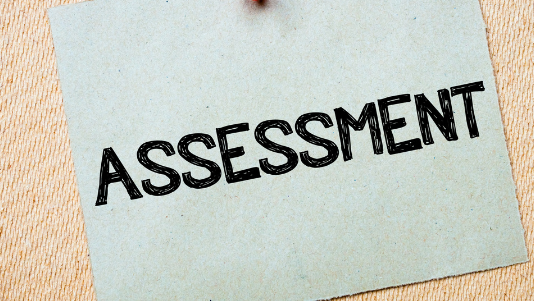Your doctor or school recommended that your child get a psycho-educational evaluation.
A what?!
Let’s do a deep dive into what the evaluation process means, and what you and your child can expect.
Parental Concerns

You have concerns about your child’s learning. Maybe your child is struggling to read fluently, maybe they struggle with reading comprehension, or maybe they have trouble focusing on what they are learning. Maybe they have difficulty with transitioning between tasks, or challenges with their peers.
You may have brought it up to your child’s doctor and they recommended that you talk to your child’s school. Or, you may have already talked to your child’s teacher and they suggested that your child may need more intervention and support, and may have a disability that is impeding them from making progress educationally.

IDEA, also known as the Individuals with Disabilities Education Act, requires that all children aged 3 and above with a suspected disability are entitled to an evaluation. All public schools, including public charter schools, are required to abide by this law.
Private schools are not required to abide by this law if they do not accept any state funding. Private schools may refer you to your home school district for an assessment if there are concerns with your child’s learning.
Starting the assessment process
If the school or parents suspect that your child may have a disability, one of the next steps that may be recommended by the school team is called a psycho-educational assessment. This assessment process looks at all educational areas that have been identified as areas of concern.

The school team will generate a form called an “assessment plan”. Parent consent is required to begin the assessment process. The assessment process timeline will start once the assessment plan is received by school personnel.
Purpose of a psycho-educational assessment
A psycho-educational assessment is completed to determine your child’s learning strengths and weaknesses. The school team will use the information gathered via the assessment to determine what your child needs support in at school. Through the assessment process, the team will determine if your child meets eligibility requirements for special education services.

As part of the assessment process, your child will be working with a team of professionals. The various professionals will work to gather information about your child’s current abilities and areas of weaknesses.
Starting testing, and what to expect
Once the assessment plan is received, the school team has 60 days (in California) to complete the assessment and create a report for the parent. The length of time that the school team has varies based on the state that you live in.
In the public school, the school team will coordinate with your child’s teacher and schedule times for the various professionals to work with your child. If your child is attending a private school, you will have to schedule a time with the public school professionals to bring your child to the public school for the assessment.
Types of assessments
The type of assessments that are administered to your child will be tailored to the areas of concern. Typically, the school psychologist will administer a cognitive assessment (also known as an IQ test) to gather information about your child’s overall processing.

In California, in the public school settings, there is a law called Larry P. which prohibits school psychologists from administering cognitive assessments to children who are identified as African American. Alternative assessments will be given to gather information on children identified as African Americans cognitive functioning.
If there are concerns with learning
Additional assessments looking at specific areas of learning will be given. These tests will address the areas of concern noted by the team. They can include looking at processing auditory information, memory, visual, or more. It is very important for parents and the school team to share all of the concerns that they have about a student’s learning. This helps the assessors target those specific areas of learning.

If there are concerns with handwriting
If there are concerns with handwriting, the school psychologist or occupational therapist will typically give tests that look at fine motor skills. This will look at your child’s ability to use their fine motor skills.
If there are concerns with attention or behavior
The school psychologist will typically give forms to the parents and teachers to fill out regarding a child’s behavior and behavior in the classroom.
Additionally, the school team will conduct observations in the school setting that are areas of concern.
For example, if your child struggles with peers at recess, the school team can do an observation at that time to see what is going on. From that observation, the school team can offer recommendations to remediate the difficulties faced by your child.

It is very important that the parent and school team complete the forms sent home by the school. Information provided by the parent and school team is incredibly important for the assessment.
If there are concerns with Speech and Language
If there are concerns with how your child says words (articulation) or how they put words together (language), the speech and language pathologist will administer tests to look at these areas.
Academic Achievement Testing
Typically, the Special Education Teacher, or Learning Center Teacher, depending on where you are located, will complete standardized academic achievement testing. This standardized testing looks at your child’s academic performance compared against children their age across the United States.

In some cases, standardized academic testing may not be appropriate or needed for your child. In that case, the Special Education teacher or Learning Center Teacher may do informal academic testing with your child, and look at their skills informally. The goal would still be to gather information on their current academic achievement, and how they are performing compared to same aged peers, or against their own previous academic performance.
What your child can expect
Your child will be pulled out of class to do the tests administered by the various professionals. Depending on the complexity of the evaluation, your child may be out of class a minimum of 4 hours, and sometimes it can be 10 or more hours out of the classroom. The professionals will keep a close eye on your child’s attention and stamina during testing, and will likely dismiss them back to class if they fatigue.
There is not a way to prepare for the standardized assessments that they will be taking with the professionals. Please encourage your child to do their best. We will take care of making them feel comfortable, and making it as fun as we can.
Participating in the Individual Education Plan (IEP) meeting

Parent input and participation in the IEP meeting is vital, and required by the law. You have many rights as a parent. If you are not sure of your rights, or would like support, you are able to bring anyone that is a support to you.
Some parents bring family members familiar with the child, others bring professionals that have worked with the child (ex. Doctors, therapists, Applied Behavior Analysis agencies, etc.), or others hire lawyers or advocates. It is important for you to feel supported through the process.
During the meeting, the school team will review the results of the assessment. If your child meets special education eligibility as a student with a qualifying disability, they will be entitled to additional services and supports. The specific services and supports that they are eligible for will be based on the needs identified by the psycho-educational evaluation.
What if I disagree with the results? What if it doesn’t match what I think my child needs?
If you are in disagreement with the results of the assessment, I would encourage you to work with your IEP team. If the IEP team did not complete evaluations in an area, or you do not feel as though the evaluation is thorough, you can ask the school team to complete additional testing.
If the school team refuses to do additional assessment, or you feel like the assessment is not representative of your child and their needs, parents are entitled to request an Independent Educational Evaluation (IEE), provided at public expense. You would request the IEE in writing. You can email or mail a letter to the following professionals: special education director, the program specialist, and the school principal.
Keep a copy of all of your documents, and the dates that you sent them.
What is the overall purpose of the evaluation process?
Overall, the intent of an evaluation is to look at your child’s strengths and weaknesses, look at eligibility for special education services, and ensure that your child has access to a Free and Appropriate Education (FAPE).
Let me know if you need support through the process, and I’d be happy to help 🙂





